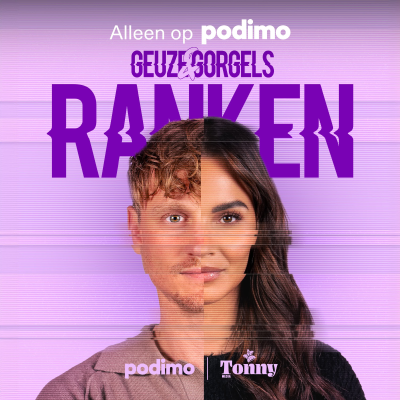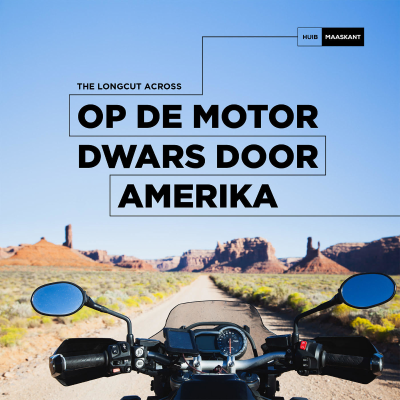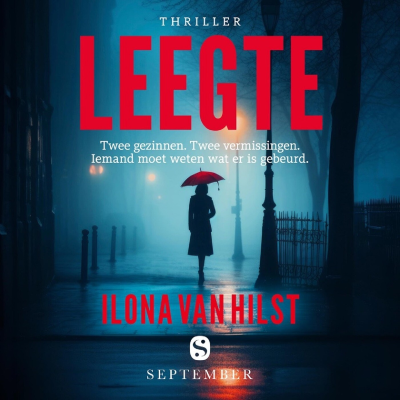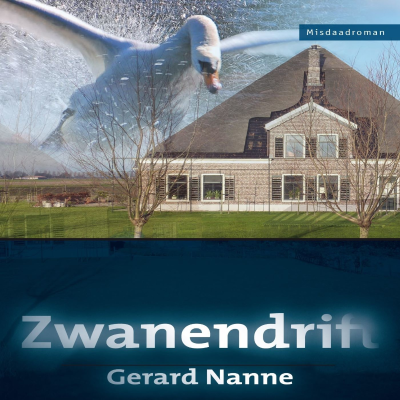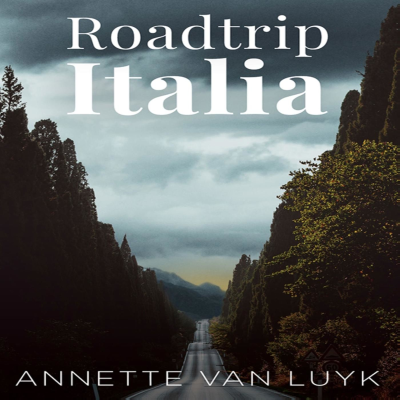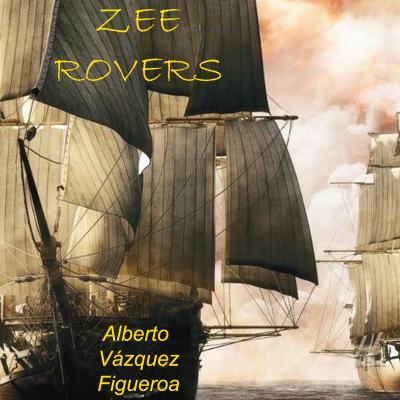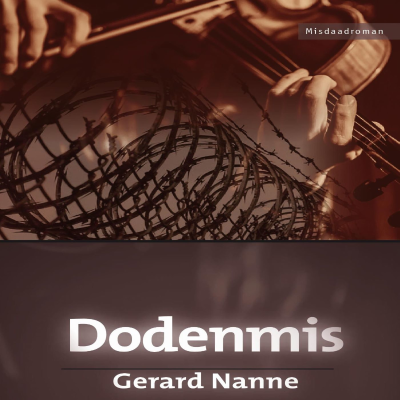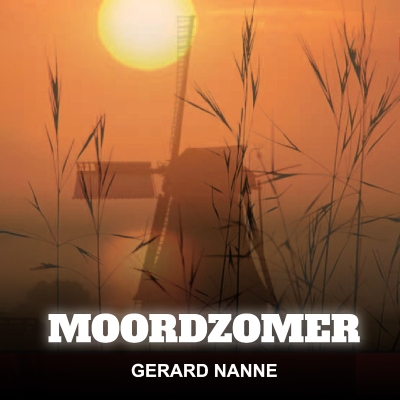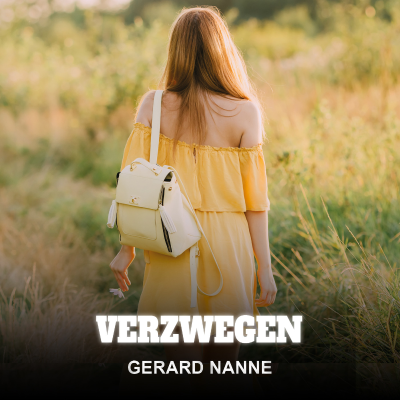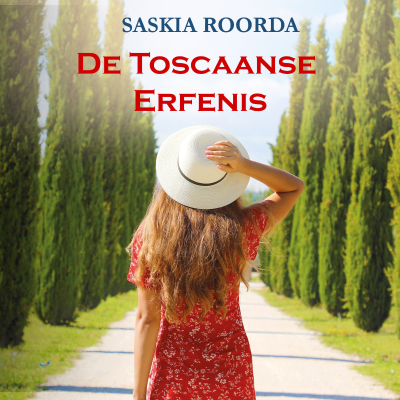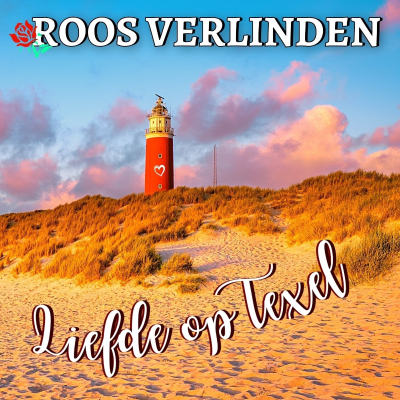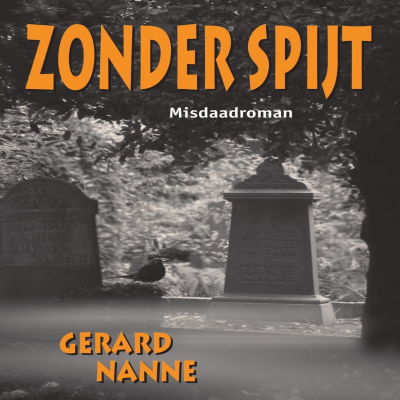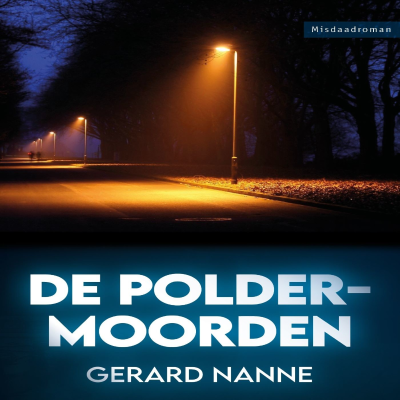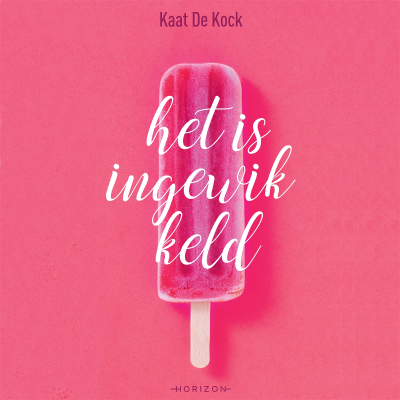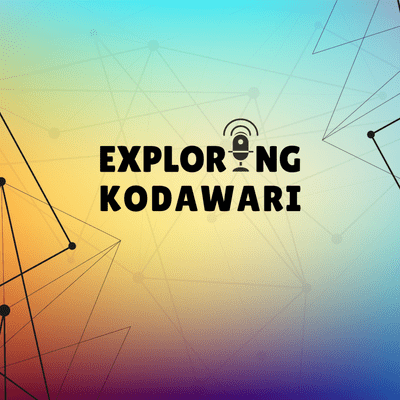
Exploring Kodawari
Engels
Persoonlijke verhalen & gesprekken
Tijdelijke aanbieding
1 maand voor € 1
Daarna € 9,99 / maandElk moment opzegbaar.
- 20 uur luisterboeken / maand
- Podcasts die je alleen op Podimo hoort
- Gratis podcasts
Over Exploring Kodawari
We are two classical musicians exploring the many manifestations of kodawari in the world. Kodawari is a beautiful concept word from Japanese. Although difficult to translate succinctly, kodawari essentially means pursuing perfection in a craft. It is the pursuit of an ideal even though you realize you can’t arrive there. Kodawari is what drives musicians to spend countless hours in the practice room. It motivates a chef to make the perfect meal, a writer to suffer over their words, and a barista to craft the perfect drink. But it is also an approach to life. We want to read books, interview people, discuss topics, and discover amazing content that will keep our kodawari fire burning. It is our excuse to continue growing as musicians and as people, and we hope that you'll join us! https://exploringkodawari.blog/about-kodawari/
Alle afleveringen
42 afleveringenLessons And Observations in 2024 (#40)
Well, it's been over a year since our last episode! As a COVID-19 pandemic project, sticking to a consistent publishing schedule for this podcast has been tough. But we've always said that even if our focus on it fades and drifts, we'll continue putting out content as long as we have something to say. So, we threw this episode together on New Year's Eve to at least say that we put out one episode in 2024. Enjoy our lessons, observations, and reflections on 2024, which includes topics we hope to cover over a few episodes in 2025. We talk about the value of simplicity, gratitude prayers, learning to surrender, knowledge vs wisdom, and the meaning crisis in our culture and why there are so many zombie movies/TV shows. 2024 QUOTE "It is very simple to be happy, but it is very difficult to be simple." —Rabindranath Tagore TIMESTAMPS: * [01:48] Gratitude practice/prayer * [06:16] Earning your simplicity * [08:52] The value of surrender * [18:04] What is wisdom? * [22:03] Meaning of life vs. meaning in life * [39:24] The Greek word tonos and embracing healthy tension * [45:19] Thoughts on toxic compassion LINKS: * Overcoming Nihilism [https://exploringkodawari.blog/overcoming-nihilism-why-meaning-matters-and-how-to-find-it/] (My 2022 article) * Zombies in Western Culture A Twenty-First Century Crisis [https://www.openbookpublishers.com/books/10.11647/obp.0113] by John Vervaeke, Christopher Mastropietro, and Filip Miscevic SUPPORT US: You can always support us by leaving a rating or review in your podcasting app. You can also share our episodes with friends on social media. But it does take a lot of time to put together a podcast, maintain a website, and write new content every week. So if you would like to support us in a more substantial way, consider making a donation through the PayPal buttons on our website: https://exploringkodawari.blog/donation/ [https://exploringkodawari.blog/donation/] FOLLOW US: * Our Website/Blog [https://exploringkodawari.blog/] * Newsletter [https://exploringkodawari.blog/newsletter/] * Twitter: @EKodawari [https://twitter.com/EKodawari] * Instagram: @exploringkodawari [https://www.instagram.com/exploringkodawari/] * Facebook: facebook.com/ExploringKodawari [https://www.facebook.com/ExploringKodawari/]
Revisiting Kodawari (#39)
In this episode—especially since it has been so long since our last one—we decided to revisit the concept of kodawari and how it has changed for us over the three years of doing this podcast/blog. Over time we encounter more knowledge and have more life experiences. And as we attempt to integrate those into a coherent life philosophy, our ideas about life change and update. I believe we have a duty to regularly bring a beginner's mind [https://exploringkodawari.blog/beginners-mind/] to our ideas so that we can "rediscover" them with novelty. There is something cyclic to the way that we descend into a more chaotic state of confusion and then emerge from it by finding once again our deep truths with freshness in the present moment. This cyclic process can subtly or drastically update our ideas, making them more personal, genuine, valuable, and "true". So since we are very different people than when we started the podcast three years ago, we felt it would be good to revisit the meaning of kodawari with fresh eyes. We especially lean into the uncompromising element of kodawari and why our society needs more "skillful inflexibility" to continue functioning. TIMESTAMPS: * [04:36] Why are we revisiting the meaning of kodawari? * [09:09] How has kodawari changed for us? * [12:12] What are we uncompromising about? * [20:41] Rethinking how perfection fits into kodawari * [23:11] Why humility is crucial * [26:32] Limitations of the intellect and Chekhov’s The Seagull * [32:59] Our official 2023 definition of kodawari LINKS: * First podcast episode on kodawari [https://exploringkodawari.blog/podcast-episodes/what-is-kodawari/] * Article: What is Kodawari? [https://exploringkodawari.blog/what-is-kodawari/] * Japanese Ramen’s Kodawari [https://scholarblogs.emory.edu/noodlenarratives/2019/08/10/japanese-ramens-kodawari/] * The Japanese philosophy of "Kodawari" [https://www.linkedin.com/pulse/japanese-philosophy-kodawari-great-minds-think-alike-swarup-das/] * Chekhov’s The Seagull [https://www.instagram.com/reel/Cl1-z6HteL_/?igshid=YmMyMTA2M2Y=] * A Rabbi, a Priest, and an Atheist Smoke Weed Together [https://youtube.com/watch?v=TFzy1l_WoAs&si=EnSIkaIECMiOmarE] SUPPORT US: You can always support us by leaving a rating or review in your podcasting app. You can also share our episodes with friends on social media. But it does take a lot of time to put together a podcast, maintain a website, and write new content every week. So if you would like to support us in a more substantial way, consider making a donation through the PayPal buttons on our website: https://exploringkodawari.blog/donation/ [https://exploringkodawari.blog/donation/] FOLLOW US: * Our Website/Blog [https://exploringkodawari.blog/] * Newsletter [https://exploringkodawari.blog/newsletter/] * Twitter: @EKodawari [https://twitter.com/EKodawari] * Instagram: @exploringkodawari [https://www.instagram.com/exploringkodawari/] * Facebook: facebook.com/ExploringKodawari [https://www.facebook.com/ExploringKodawari/]
The Hedonic Treadmill: Exploring Happiness , Meaning, and Hedonic Adaptation (#38)
> “‘I shall take the heart,’ returned the Tin Woodsman; ‘for brains do not make one happy, and happiness is the best thing in the world.’” —L. Frank Baum The topic of this episode is happiness and hedonic adaptation, otherwise known as the hedonic treadmill. Hedonic adaptation is a phenomenon of our psychology and physiology that keeps us at a stable level of happiness over time. This adaptation is like an immune system that desensitizes us in relation to negative and positive experiences, making us continually find our happiness baseline. THE HEDONIC TREADMILL The concept of hedonic adaptation dates back to a 1971 paper by Philip Brickman and Donald T. Campbell called "Hedonic Relativism and Planning the Good Society", and it was made even more famous in a 1978 study called "Lottery Winners and Accident Victims: Is Happiness Relative?" The study compared lottery winners and paraplegics with a control group to show that both groups eventually adjusted and returned to a baseline of happiness. The hedonic treadmill, or happiness treadmill, is named as such because no matter how much you chase happiness and increase it in the short term, you end up in the same place continually chasing. The hedonic pathways in our brains become desensitized to pleasurable things that we encounter regularly. So after big life events like winning the lottery, getting a job promotion, getting married, etc, we will tend to settle back to our happiness set point. THE MEANING OF HAPPINESS Aside from the science of hedonic adaptation, we also talked about the philosophy of happiness and whether it is a good goal in life. How is happiness different from words like joy, pleasure, tranquility, peacefulness, excitement, satisfaction, content, cheerful, or well-being? Is happiness something we get from the external world or does it come from within? Do we seek happiness or are we really running away from suffering? And what is the difference between a meaningful life and a happy life? SOLUTIONS TO THE HEDONIC TREADMILL > “Now and then it’s good to pause in our pursuit of happiness and just be happy.” —Guillaume Apollinaire Lastly, we talked about ways to overcome hedonic adaptation so that we do not continually get caught in the same traps throughout life. Routines such as a dopamine detox and spiritual practices like gratitude and Beginner's Mind [https://exploringkodawari.blog/beginners-mind/] are all ways to avoid getting stuck on the hedonic treadmill. TIMESTAMPS: * [06:08] What is happiness? * [10:05] What is the difference between happiness and well-being? * [15:28] Dopamine * [27:57] What is hedonic adaptation? * [35:14] Hedonic adaptation towards negative phenomena * [39:23] How to combat the hedonic treadmill * [50:40] Why negative emotions are necessary LINKS: * A French poet’s beautiful advice on how to be happy [https://medium.com/the-ascent/this-simple-quote-will-change-your-perspective-on-happiness-5896668f4e7d] (Luke's Medium article) * Lottery winners and accident victims: is happiness relative? [https://pubmed.ncbi.nlm.nih.gov/690806/] P Brickman, D Coates, R Janoff-Bulman * Stepping Off the Hedonic Treadmill [https://www.tc.columbia.edu/media/centers/lte-lab/peered-review-journals/2011/20754_2011_mancini_bonanno_clark_JID.pdf] * Beyond the Hedonic Treadmill: Revising the Adaptation Theory of Well-Being [http://labs.psychology.illinois.edu/~ediener/Documents/Diener-Lucas-Scollon_2006.pdf] * How Does Hedonic Adaptation Affect the Pursuit of Happiness? [https://youtu.be/BYz12v_sqQc] - with Joe Gladstone SUPPORT US: You can always support us by leaving a rating or review in your podcasting app. You can also share our episodes with friends on social media. But it does take a lot of time to put together a podcast, maintain a website, and write new content every week. So if you would like to support us in a more substantial way, consider making a donation through the PayPal buttons on our website: https://exploringkodawari.blog/donation/ [https://exploringkodawari.blog/donation/] FOLLOW US: * Our Website/Blog [https://exploringkodawari.blog/] * Newsletter [https://exploringkodawari.blog/newsletter/] * Twitter: @EKodawari [https://twitter.com/EKodawari] * Instagram: @exploringkodawari [https://www.instagram.com/exploringkodawari/] * Facebook: facebook.com/ExploringKodawari [https://www.facebook.com/ExploringKodawari/]
Chad Goodman: The Art of Orchestral Conducting (#37)
In this episode, we explore the art of orchestral conducting with guest Chad Goodman. Chad is currently the conducting fellow of the New World Symphony in Miami Beach, and he has also had fellowships at Festival Napa Valley and the Atlantic Music Festival. Since 2018, he has served as an assistant conductor to the San Francisco Symphony, and he also founded Elevate Ensemble in the Bay Area. Chad is also a good friend of ours, and so we used this conversation as an opportunity to get a more personal take on how orchestral conducting works and how a conductor thinks about music and prepares for concerts. We talked about music interpretation, the role of a conductor, communication, and how to unify a large group. We also talked about the beauty of constantly learning and improving and how outside knowledge helps unlock the secrets within a musical score. And lastly, aside from the more obvious sign language elements to orchestral conducting, we also tried to touch on abstract elements such as body language, eye contact, and energy. Some musical performances capture magical energy, and we wondered how a conductor thinks about that and how they try to cultivate that energy. TIMESTAMPS: * [05:17] What exactly is orchestral conducting? * [10:22] At what size does an ensemble need a conductor? * [15:21] What makes conducting break down /not work? * [25:05] How is kodawari relevant to conducting and what is perfection? * [32:29] Why is music meaningful? * [38:06] How does outside knowledge affect the interpretation/conducting of music? * [48:52] On why learning never ends * [56:07] Communication and the sign language of conducting * [01:02:24] Bonus Questions/Speed Round LINKS: * Chad's website [https://www.chadgoodmanmusic.com/] * Chad's Instagram [https://www.instagram.com/chadgoodmanmaestro/] * How to enter ‘flow state’ on command [https://youtu.be/znwUCNrjpD4] | Steven Kotler * Flow Profile Test [https://www.flowgenomeproject.com/flow-profile] from Flow Genome Project * What is Kodawari? [https://exploringkodawari.blog/what-is-kodawari/] * Kodawari and Circumambulation [https://exploringkodawari.blog/circumambulation-and-the-kodawari-approach-to-life/] SUPPORT US: You can always support us by leaving a rating or review in your podcasting app. You can also share our episodes with friends on social media. But it does take a lot of time to put together a podcast, maintain a website, and write new content every week. So if you would like to support us in a more substantial way, consider making a donation through the PayPal buttons on our website: https://exploringkodawari.blog/donation/ [https://exploringkodawari.blog/donation/] FOLLOW US: * Our Website/Blog [https://exploringkodawari.blog/] * Newsletter [https://exploringkodawari.blog/newsletter/] * Twitter: @EKodawari [https://twitter.com/EKodawari] * Instagram: @exploringkodawari [https://www.instagram.com/exploringkodawari/] * Facebook: facebook.com/ExploringKodawari [https://www.facebook.com/ExploringKodawari/]
Contending With Nihilism Part 2: Meaning in the Face of Absurdity (#36)
> "Written fifteen years ago, in 1940, amid the French and European disaster, this book declares that even within the limits of nihilism it is possible to find the means to proceed beyond nihilism. In all the books I have written since, I have attempted to pursue this direction. Although “The Myth of Sisyphus” poses mortal problems, it sums itself up for me as a lucid invitation to live and to create, in the very midst of the desert." —Albert Camus This episode is part two of our exploration of nihilism and the search for meaning in life—be sure to check out the previous episode [https://exploringkodawari.blog/podcast-episodes/nihilism-meaning-crisis/] to hear the first half of this conversation. But in this episode, we try to overcome the meaning crisis induced by nihilism to find a more durable sense of meaning in life. We also try to figure out what meaning even is. Is it possible to define meaning? Or is it something more implicit and instinctual? And finally, we close out the episode by exploring the philosophy of Absurdism as outlined by Camus in The Myth of Sisyphus. As Camus states: "The struggle itself towards the heights is enough to fill a man's heart. One must imagine Sisyphus happy." For a more thorough exploration of this topic, check out our article below: Overcoming Nihilism: Why Meaning Matters And How To Find It [https://exploringkodawari.blog/overcoming-nihilism-why-meaning-matters-and-how-to-find-it/] TIMESTAMPS: * [04:50] Why you should contend with nihilism and camp in that perspective * [08:20] What is meaning? * [12:50] The meaning of the movie It's a Wonderful Life and why it makes people cry * [19:00] Meaning as service to others and assuming that Being is good * [21:05] Meaning as a surrender of the intellect * [26:40] Meaning as pointing (Kevin Simler's A Nihilist's Guide to Meaning [https://meltingasphalt.com/a-nihilists-guide-to-meaning/]) * [29:19] Albert Camus, Absurdism, and The Myth of Sisyphus * [39:30] How to bring someone back from a nihilistic place LINKS: * The ending of It's a Wonderful Life [https://youtu.be/lxNXtjGY_Us] * Albert Camus: The Myth of Sisyphus [https://people.brandeis.edu/~teuber/Albert_Camus_The_Myth_of_Sisyphus_Complete_Text_.pdf] * Jordan Peterson: The Meaning of Life [https://youtu.be/4yR3aWK-LK8] SUPPORT US: You can always support us by leaving a rating or review in your podcasting app. You can also share our episodes with friends on social media. But it does take a lot of time to put together a podcast, maintain a website, and write new content every week. So if you would like to support us in a more substantial way, consider making a donation through the PayPal buttons on our website: https://exploringkodawari.blog/donation/ [https://exploringkodawari.blog/donation/] FOLLOW US: * Our Website/Blog [https://exploringkodawari.blog/] * Newsletter [https://exploringkodawari.blog/newsletter/] * Twitter: @EKodawari [https://twitter.com/EKodawari] * Instagram: @exploringkodawari [https://www.instagram.com/exploringkodawari/] * Facebook: facebook.com/ExploringKodawari [https://www.facebook.com/ExploringKodawari/]
Kies je abonnement
Tijdelijke aanbieding
Premium
20 uur aan luisterboeken
Podcasts die je alleen op Podimo hoort
Gratis podcasts
Elk moment opzegbaar
1 maand voor € 1
Daarna € 9,99 / maand
Premium Plus
Onbeperkt luisterboeken
Podcasts die je alleen op Podimo hoort
Gratis podcasts
Elk moment opzegbaar
Probeer 30 dagen gratis
Daarna € 11,99 / month
1 maand voor € 1. Daarna € 9,99 / maand. Elk moment opzegbaar.





